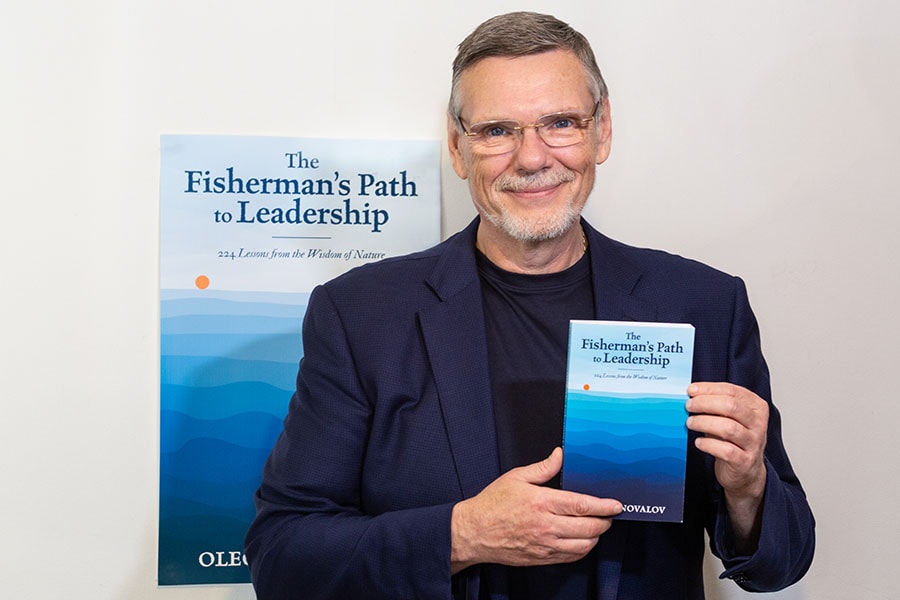
'Weak leaders tend to jump the gun, strong ones pause to think'
Dr Oleg Konovalov argues that nature is the best leadership coach ever. The author of The Fisherman's Path To Leadership: 224 Lessons From The Wisdom Of Nature says we have enough problem-solvers; we need more solution-finders
 Dr Oleg Konovalov, a business educator, consultant and C-suite coach
Dr Oleg Konovalov, a business educator, consultant and C-suite coach
Dr Oleg Konovalov is a business educator, consultant and C-suite coach. He is also the author of The Fisherman’s Path To Leadership: 224 Lessons From The Wisdom Of Nature. In an interview with Forbes India, he draws upon his fishing experience to unlock the secret to successful leadership. Edited excerpts:
Q. Could you let us a bit into the book’s back story?
Fishing is about connecting with nature. Humans are only a part of nature. We can’t create or invent anything smarter or better than nature does. It is an infinite source of learning. Every fishing trip is about asking questions: How can I expand my mindset? How can I become better as a leader and as a person? How do I lead people in challenging situations? I was always chasing the large fish that demanded opening my mind to a greater extent every time. Every fishing trip is a lesson in leadership, strategy, marketing and personal growth. This is about deep thinking, hard work and an enhanced mindset. Little thought, nothing caught. I wrote The Fisherman’s Path to Leadership intending to share my lessons as if I would be sharing them with my friends whilst sitting around a campfire.
Q. What’s the larger perspective you are trying to build through the fishing analogy?

















